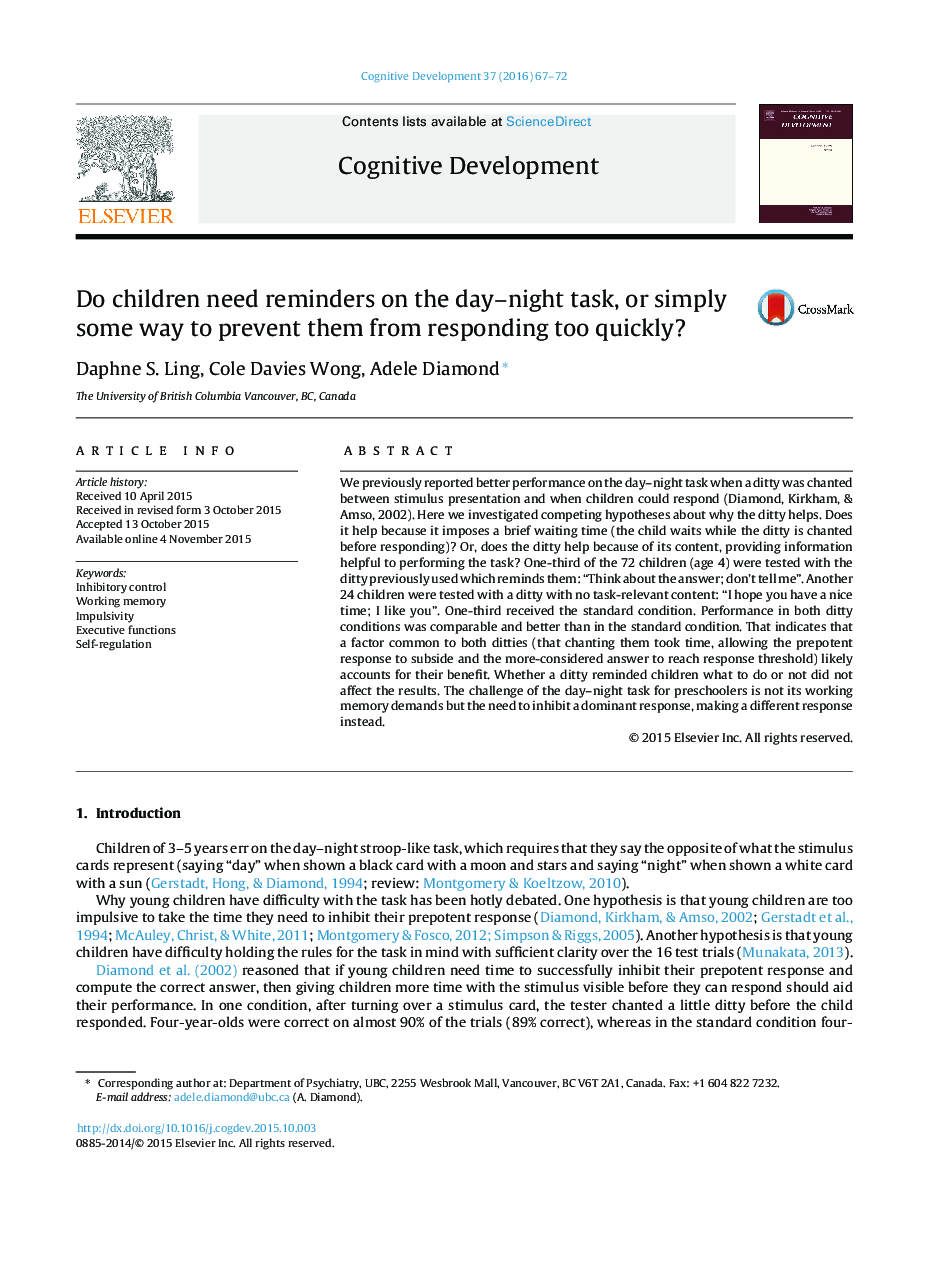| کد مقاله | کد نشریه | سال انتشار | مقاله انگلیسی | نسخه تمام متن |
|---|---|---|---|---|
| 916476 | 1473346 | 2016 | 6 صفحه PDF | دانلود رایگان |
• We tested two competing hypotheses for why young children perform so much better on the day–night task when the tester chants two very short sentences after the stimulus is presented than in the standard condition (where there is no chanting).
• We found that the content of the ditty did not matter (a ditty with no task-relevant information helped as much as one with potentially relevant content) and conclude that it is the time taken up by the chanting (delaying when the child is able to respond) that makes the difference.
• Preschoolers tend to have better memories and worse inhibitory control than adults often appreciate. Thus, memory aids are often less important for them than finding ways to scaffold their inhibitory control.
• Preschoolers’ impulsivity often leads them to quickly give the first response that comes to mind rather than the correct one. Preschoolers can respond correctly if some way can be found to get them to delay responding for just a few moments.
• Having preschoolers delay responding scaffolds their inchoate inhibitory abilities since by the time they are allowed to respond less inhibition is needed (the incorrect response that popped into mind first has had time to begin to fade).
We previously reported better performance on the day–night task when a ditty was chanted between stimulus presentation and when children could respond (Diamond, Kirkham, & Amso, 2002). Here we investigated competing hypotheses about why the ditty helps. Does it help because it imposes a brief waiting time (the child waits while the ditty is chanted before responding)? Or, does the ditty help because of its content, providing information helpful to performing the task? One-third of the 72 children (age 4) were tested with the ditty previously used which reminds them: “Think about the answer; don’t tell me”. Another 24 children were tested with a ditty with no task-relevant content: “I hope you have a nice time; I like you”. One-third received the standard condition. Performance in both ditty conditions was comparable and better than in the standard condition. That indicates that a factor common to both ditties (that chanting them took time, allowing the prepotent response to subside and the more-considered answer to reach response threshold) likely accounts for their benefit. Whether a ditty reminded children what to do or not did not affect the results. The challenge of the day–night task for preschoolers is not its working memory demands but the need to inhibit a dominant response, making a different response instead.
Journal: Cognitive Development - Volume 37, January–March 2016, Pages 67–72
